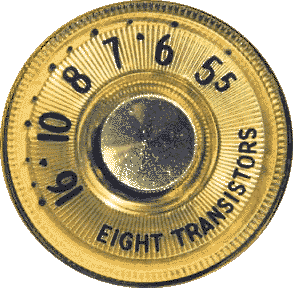

May 8, 2025
|
|
Weekly Update  Program Calendar Program Archives SOUNDPRINT Awards Producers Guidelines Carriage Information Subscribe Unsubscribe

|
December 7, 1941 and September 11, 2001: two days that changed the world forever. After the attack on Pearl Harbor in 1941, people of Japanese ancestry living in the United States were subjected to the emotional venting of racial hatred and distrust, eventually leading to the incarceration of nearly 120,000 people, most of them U.S. citizens.Today, in the aftermath of the terrorist attacks on September 11, Arab and Muslim Americans and other citizens of Middle Eastern and South Asian descent fear for their lives, worry about their futures, and question the validity of their constitutional rights. Sixty years have passed, but have things really changed?
Face to Face explores what it means to be an American with the face of the enemy. These are real stories of fear, anger, hatred, loyalty and trust.
 Water in the Desert, a special KJZZ radio series takes an in-depth looks at water in the Southwest, from climate models and forecast to water management and how water gets to your tap.
Water in the Desert, a special KJZZ radio series takes an in-depth looks at water in the Southwest, from climate models and forecast to water management and how water gets to your tap. The radio documentary series What If: Models, Predictions, and Scenarios explores modeling; the mathematical simulations that scientists use to understand the intricate world we live in. With these models scientists hope to forecast trendsand events in many fields from the economy to natural disasters.
The radio documentary series What If: Models, Predictions, and Scenarios explores modeling; the mathematical simulations that scientists use to understand the intricate world we live in. With these models scientists hope to forecast trendsand events in many fields from the economy to natural disasters. Teaching NOW! is a television and radio series that investigates the relationships between education and technology. THe series explores issues, ideas and strategies surrounding today's education and tomorrow's teachers.
Teaching NOW! is a television and radio series that investigates the relationships between education and technology. THe series explores issues, ideas and strategies surrounding today's education and tomorrow's teachers. In commemoration of the one-year anniversary of the worst terrorist attack in America's history, WAMU and Soundprint take a long look at our military through the eyes of those who serve. Starting out at the Pentagon, you'll hear just one of the stirring stories of bravery and comradeship from September 11, followed by segments of show host Steve Roberts' interview with Secretary of Defense, Donald Rumsfeld.
In commemoration of the one-year anniversary of the worst terrorist attack in America's history, WAMU and Soundprint take a long look at our military through the eyes of those who serve. Starting out at the Pentagon, you'll hear just one of the stirring stories of bravery and comradeship from September 11, followed by segments of show host Steve Roberts' interview with Secretary of Defense, Donald Rumsfeld. One Hundred Eighty Four people died at the Pentagon while hundreds more crawled through choking smoke and over burning wreckage to safety. But because the Pentagon attack was dwarfed by the tragedy at the World Trade Center, America has yet to hear the stories of the valiance and tenaciousness of the Pentagon employees; about the horrendous physical and psychic toll the attack has taken on them and their families -- and about how they have overcome and are moving on.
One Hundred Eighty Four people died at the Pentagon while hundreds more crawled through choking smoke and over burning wreckage to safety. But because the Pentagon attack was dwarfed by the tragedy at the World Trade Center, America has yet to hear the stories of the valiance and tenaciousness of the Pentagon employees; about the horrendous physical and psychic toll the attack has taken on them and their families -- and about how they have overcome and are moving on.This hour-long program tells these stories in the voices of the people who lived them. Without narration. Many of these survivor stories are devastating. Many are inspirational. And as America looks to move forward from the trauma of 9-11, they offer important lessons.
When Guglielmo Marconi installed a receiving station at St. Johns Newfoundland in November 1901 he probably never realized the full impact of his invention. Radio is now as remarkable as wallpaper. The people of St. Johns are determined to celebrate this most ubiquitous of mediums on the 100th anniversary of the transmission of the first signal across the Atlantic. Producer Chris Brookes from Battery Radio captures the town's enthusiasm as they move through the day. What is life like around the perimeter of Ground Zero? It has become part of the landscape now - disaster area, tourist attraction and shrine \u2013 The Edge of Ground Zero paints a compelling portrait of 24 hours: the rescue workers as they take a break, the visitors and tourists who come to stare and take photographs, the evangelicals, the street vendors, the police officers and those who were left behind.
What is life like around the perimeter of Ground Zero? It has become part of the landscape now - disaster area, tourist attraction and shrine \u2013 The Edge of Ground Zero paints a compelling portrait of 24 hours: the rescue workers as they take a break, the visitors and tourists who come to stare and take photographs, the evangelicals, the street vendors, the police officers and those who were left behind.


|
||||

